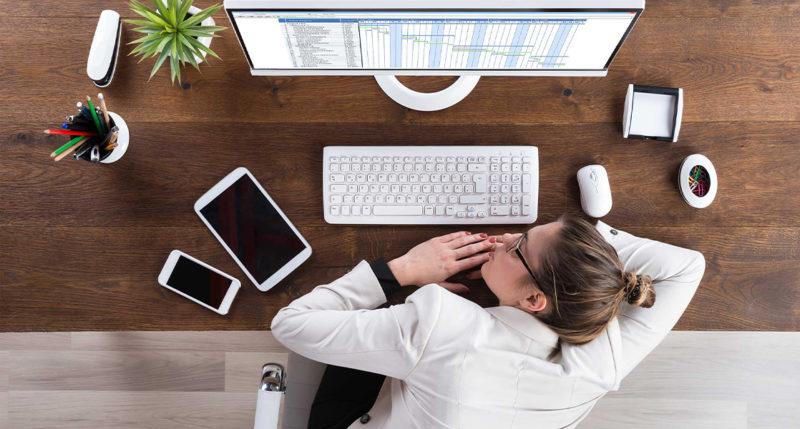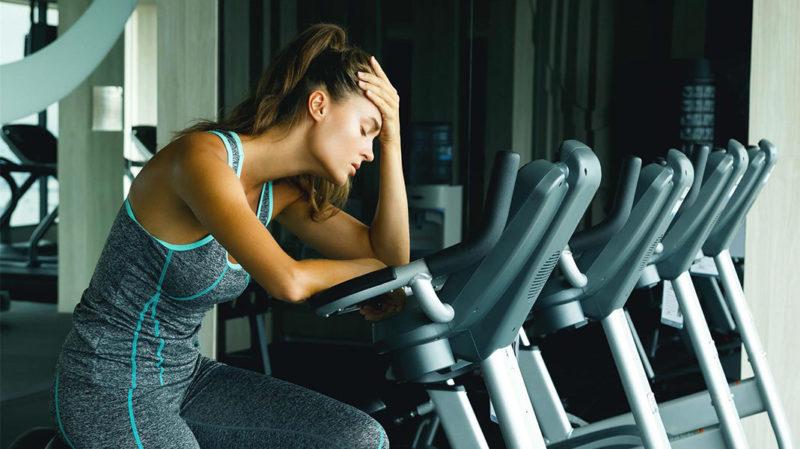
Most Firstbeat Lifestyle Assessments are conducted for working age people; the average participant age in the Firstbeat database is 43. But coping with and conquering stress, getting enough sleep and staying fit are important topics even before you hit the career rollercoaster, and students can certainly benefit from the insights that a Lifestyle Assessment can provide.
As a mom of a college junior and a high school senior, I get to witness the pressures that today’s youth are under, and as an exercise physiologist, I’m naturally interested in seeing how they are coping physiologically. In fact, my family is always at risk of becoming a guinea pig – my sons, my parents, goddaughter and husband have (happily?) tested different devices and versions of Lifestyle Assessment over the years. Now it was time for my 21-year-old college student to put on the Bodyguard for 3 days. The idea was to see how he’s dealing with college life, and what kinds of insights the Lifestyle Assessment might offer to students in general. The assessment period included a school day, a work day doing manual labor and a student party day. Here’s a look at what the results showed:
The busy school day with several lectures had no exercise, but walking around campus (light blue bars in the graph below) was enough to provide moderate health effects and a good number of steps. This kind of activity, although not enough to improve his fitness, is a good contrast to sitting in a classroom. The day’s stress peak was during a tough German lesson, balanced off by a few recovery moments in the late afternoon. Recovery during sleep was good, but the 5.30 am wake-up to go to work cut his recovery short. Six hours of sleep was not enough for a full recharge: his stress-recovery balance was 50 and sleep score 55 (scale of 0-100), which is a moderate result. 1-2 more hours of sleep would have done wonders for his overall recovery status. Without a doubt, this is a typical challenge for many of us – how to get enough rest before those early mornings?

(Click to enlarge) A busy school day, some relaxation in the pm and watching exciting sports in the evening was followed by a good, but short sleep period.
The work day proved to be quite a physical challenge! Carrying heavy loads upstairs went “beyond stress” and registered as 4½ h of light, 1 ½ h of moderate and 30 min of vigorous physical activity (blue segments in the graph below). Being in good shape helped him; during the coffee and lunch breaks his heart rate quickly dropped and allowed to him to wind down. The other graph is from a Firstbeat Physical Workload report, showing METS and heart rate variability (RMSSD) to further illustrate the heavy workload. A less fit worker would not recover enough during breaks to maintain this type of heavy effort. On this day, his stress-recovery balance was only 45 (no daytime recovery; heavy load), but the sleep score was now 80, thanks to the long sleep period and his good ability to recover from the physical stress.

(Click to enlarge) The role of breaks is important if the workload is very heavy. Coffee breaks at 9am / 1.30pm and lunch break at 11am show a drop in heart rate and METs and an increase in heart rate variability (RMSSD).
The party evening and night offered no surprises, at least to anyone familiar with Lifestyle Assessment results… The evening was full of excitement, showing up as light physical activity and stress, and since “a few beers” were consumed throughout the evening, there was essentially no recovery during sleep, which started at 3.30 am and continued late into the next morning (graph below). A few segments of recovery towards the morning, but the contrast to the other nights is stark. My guess as a mom/physiologist is that this won’t stop him – or other students – from partying now and again, but the result did make him take pause, just like it does with most people. It’s sobering to see how big the effect is, whether you are young or old. Something to consider if you have a big exam or presentation ahead and you want to be at your sharpest the next day. Hard exercise is also useless, or even a health risk, the day after a heavier party, a topic often raised both with athletes and regular people interested in their fitness. You need an easy recovery day after a night like that, before you can expect to reap the normal benefits of exercise. If interested, you can read more about this topic in our blog About Exercise, alcohol and recovery.

(Click to enlarge) The party evening and the night after offered little recovery. Not a surprise, but a reality check!
These three days were not fully representative of this student’s normal life, especially considering the extreme work shift, and because of that, a lack of regular exercise. At the same time, it wasn’t that exceptional; college life typically includes a lot of activity, deadlines and getting pulled in different directions, and the Lifestyle Assessment report highlighted some of the challenges that many of us, students or not, have to balance.
I can’t help but finish with a few suggestions … so here are my top 3 “student survival tips”:
- When you have a part-time job, or a particularly heavy study load, sleep is often where you compromise. You can survive sleepless nights now and then, especially when you are young, but sufficient good-quality sleep is still one of the best investments in your well-being, performance and innovative thinking!
- Do some kind of exercise that you enjoy several times per week. It won’t get any easier to find time for it when you get a job and maybe a family, but if the exercise habit is formed early, it’s easier to stick with it when the going gets even tougher. Being fit has also been shown to help with stress management and better sleep!
- Parties belong to student life, but seeing what drinking does to your sleep might help you practice some moderation from time to time and make smart choices when the exam season is ahead
Are you interested in supporting your well-being with accurate stress and recovery data?
You might also be interested in

What is Presenteeism? And How Can We Fix the Multi-billion-pound Problem?
Paying proper attention to the well-being of staff will lead to a better working environment and happier, more productive employees.

About Exercise, Alcohol and Recovery
If the goal is to improve fitness, training must be matched with good recovery. One of the factors known to have a negative effect on recovery is alcohol.

Reflection on My Dry January: Did It Make a Difference?
In Finland, 20-30% of adults take part in alcohol-free January. I decided to test this myself, collect some data and see how an alcohol-free month affects me. Would I notice some benefits, such as increased energy, better sleep, or even improved heart rate variability (HRV) during sleep?



